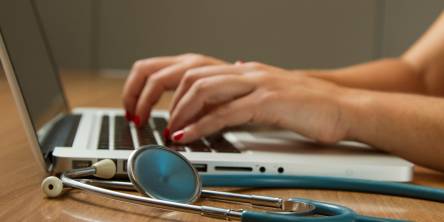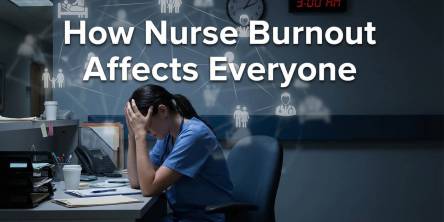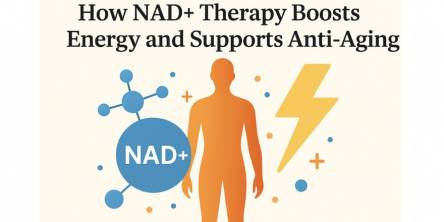Do you Know How Your Body Clock Works ?

The human body is a miraculous assembly of organ systems performing definite tasks at a definite time. While you think you have assigned a specific time for reading, working, playing, and sleeping, your body has even a more meticulous plan for each organ to work and rest. That is why, when we mess with our daily activities and a healthy routine, a number of health issues and sickness start hovering around us. Guess where they emerge from? They are the side effects of altering the human body clock or specifically, the result of disturbing the working hour of a given organ.
Do you face these problems?
Do you ever feel sluggish, foggy, lethargic or dull? Or do you experience pain in your stomach, nausea, anorexic, or simply sleepy? Other might be experiencing pain in their body, muscle cramps, headaches and other crampy twitches. These problems might be due to the inability of your body organs to repair the damage they incur the whole day long without proper rest. If you continue exhausting yourself without caring for your body, these small symptoms might turn into severe medical issues.
The body has a strict schedule for self-care and self-repair which are performed by organs at a specific time of day and night. If you are aware of these body time-tables, you would probably be able to refrain from activities at odd hours of the day that put your organs into stressed conditions when they really need to rest or work.
Below is the repair time-table of body organs
The twelve major organs of our body consume two hours a day to repair themselves and get ready for the next beautiful day.
Lungs: 3 AM to 5 AM
The lungs get loosened from 3 am to 5 am to throw the toxins out. Sometimes, this is the reason why you cough in the morning right after waking up. The lungs try to expel the wastes out through coughing.
Large Intestine or Colon: 5 AM to 7 AM
This is the time when your colon flushes out the waste material. Irrigate your large intestine with the right amount of water to help it do its job appropriately. Never have caffeine in the morning as it absorbs the water from the colon altering its smooth functioning.
Stomach: 7 AM to 9 AM
The stomach needs a little input at these hours to let you feel energetic and improve your concentration. Start with a light and easily digestible meal followed by fruit juice to keep going. Try to have the breakfast on time as the body needs to break its fast that continued throughout the night.
Spleen: 9 AM to 11 AM
This is the time when the spleen gets cleaned and active. It helps the immune system by producing antibodies to fight allergies and infections. If your spleen is not in good condition, you might fall sick frequently as you would not be able to fight the microscopic invasions on your body.
Heart: 11 AM to 1 PM
This is the time for the heart to repair and cleanse the everyday plaque, cholesterol, and dirt it receives. It is the most active phase of heart in entire day and, according to research, seventy per cent of heart attacks happen during these hours. With an unhealthy lifestyle, the heart gets exertion during its repair process leading to heart attack. So, care for your heart and eat heart-healthy foods.
Small Intestine: 1 PM to 3 PM
Here comes the time for the small intestine to work on digestion. If this is the time when you feel bloated, burp, or get heartburns, then this might be due to the inconvenience caused to the small intestine during the digestion process. You need to take care of your diet so that your intestine can digest it fully.
Kidneys & Bladder: 3 PM to 7 PM
The urinary system comes into action at these hours. They purify your blood and keeps the system active. You might feel tired at this time and need to have a nap. Also, during these hours, don’t load your tummy with junk food or aerated beverages, as they might cause discomfort in the repair work of the urinary system.
Pancreas: 7 PM to 9 PM
Pancreas and kidney work in tandem. After the job of the kidney is done, it directs the pancreas to start its work and turn carbohydrate into sugar. If you feel sleepy during these hours, it is perhaps because the body wants you off to let the pancreas do their work.
Blood vessels are arteries: 9 PM to 11 PM
This is the repair time for the vascular system. You might get a headache, tired, and sleepy. It’s better to go to sleep so that blood vessels get time to repair themselves. After all, they need to carry blood to different parts of the body. Weakened blood vessels can lead to many other health problems.
Liver and gallbladder: 11 PM to 3 AM
This is the time when liver and gallbladder do their job of processing the wastes. If you feel irritated and uneasy during these hours, understand that the liver is finding it difficult to work. It indicates some remedial action from you concerning your diet and lifestyle.
Listen to the tick-toc of your body clock
When you know your body well, you would be able to take care of it in a better way. So, start paying attention to your body clock and maintain a routine that goes in tandem with your body.
• Eat food that is healthy for your body system
• Take your meals on time
• Avoid binging just for fun and celebration
• Do exercise and meditation
• Don’t be awake late night
• Get up in the morning on time.
Your body is the only place you live in. Make it healthy through little changes in your life. For any medical conditions, seek medical help on time and get treated. Also, go for a regular health check-up to detect anomalies, if any. Gift your body continued good health.
Similar Articles
Discover the benefits, challenges, and future of locum medical jobs. Learn how locum recruitment agencies support flexible, diverse career opportunities for healthcare professionals seeking dynamic work environments.
Burnout in the healthcare environment is a significant and growing crisis.
NAD+ therapy restores cellular energy, enhances metabolism, and promotes anti-aging by supporting DNA repair and improved overall vitality.
Seasonal Affective Disorder (SAD) is a type of depression linked to seasonal changes, most commonly seen during the late fall and winter months when sunlight exposure decreases
Enhance sleep comfort and support with a mattress topper queen. Discover how the right topper improves pressure relief, temperature control, and rest.
If your mind refuses to be quiet the moment your head touches the pillow, welcome to the club. Overthinking at night has silently become nearly synonymous with modern forms of insomnia.
Discover how longevity clinics use key biomarkers to assess ageing, improve health, and guide personalized wellness strategies for a longer, healthier life.
Halitosis, sometimes known as foul breath, affects millions of individuals worldwide and can cause humiliation, influencing everyday interactions and confidence.
In the modern world, maintaining good health often feels like a constant challenge. Between busy lifestyles, sedentary habits, and lack of motivation, many people find it difficult to stay consistent with exercise, diet, or wellness practices.









